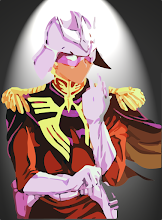Unity is a game development ecosystem: a powerful rendering engine fully integrated with a complete set of intuitive tools and rapid workflows to create interactive 3D and 2D content; easy multiplatform publishing; thousands of quality, ready-made assets in the Asset Store and a knowledge-sharing community.
For independent developers and studios, Unity’s democratizing ecosystem smashes the time and cost barriers to creating uniquely beautiful games. They are using Unity to build a livelihood doing what they love: creating games that hook and delight players on any platform.
Features :
Rendering
The graphics engine uses Direct3D (Windows, Xbox 360), OpenGL (Mac, Windows, Linux), OpenGL ES (Android, iOS), and proprietary APIs (consoles). There is support for bump mapping, reflection mapping, parallax mapping, screen space ambient occlusion (SSAO), dynamic shadows using shadow maps, render-to-texture and full-screen post-processing effects.
Scripting
The game engine's scripting is built on Mono, the open-source implementation of the .NET Framework. Programmers can use UnityScript (a custom language with ECMAScript-inspired syntax, referred to as JavaScript by the software), C#, or Boo (which has a Python-inspired syntax).
Asset Tracking
Unity also includes the Unity Asset Server - a version control solution for the developer's game assets and scripts. It uses PostgreSQL as a backend, an audio system built on the FMOD library (with ability to playback Ogg Vorbis compressed audio), video playback using the Theora codec, a terrain and vegetation engine (which supports tree billboarding, Occlusion Culling with Umbra), built-in lightmapping and global illumination with Beast, multiplayer networking using RakNet, and built-in pathfinding navigation meshes.
Platforms
Unity supports deployment to multiple platforms. Within a project, developers have control over delivery to mobile devices, web browsers, desktops, and consoles. Unity also allows specification of texturre compression and resolution settings for each platform the game supports.
Physics
Unity also has built-in support for Nvidia's (formerly Ageia's) PhysX physics engine (as of Unity 3.0) with added support for real-time cloth simulation on arbitrary and skinned meshes, thick ray casts, and collision layers.
I will also give a sample of the game creation that was made with Unity 3D.
If you want to give it a try just directly go to the official website.







No comments:
Post a Comment